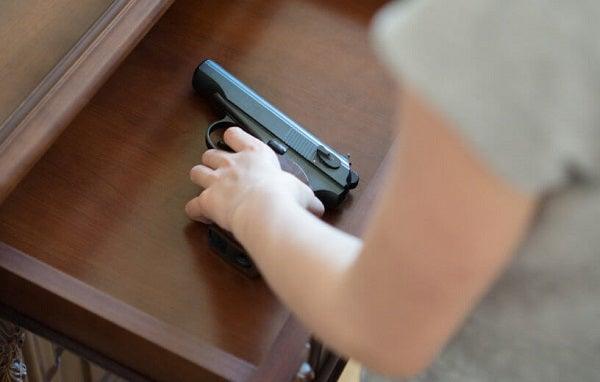How do you keep kids safe when you have guns in your home? After all, a child as young as 3 has the strength to pull a trigger.
Bill Brassard, director of Project ChildSafe, a gun-safety education program of the National Shooting Sports Foundation, has some simple tips for parents:
- Always keep guns locked and out of reach of children.
- Store ammunition in a place different from the guns.
- Never leave a gun out and unattended.
- Tell your kids never to touch a gun or gun parts -- in your house or anyone else’s.
“It’s a gun owner’s most important responsibility to keep their firearms from falling into the wrong hands -- and that includes children,” Brassard says. “They are just not mature enough to exercise good judgment around guns.”
Gun Locks and Safes
How do you make sure a gun is locked securely? Most new guns come with robust security that makes shooting impossible, says Mark Warner with Blue Ridge Arsenal, an indoor shooting range and gun shop in Chantilly, VA. One type is like a vise that covers the trigger. The other is a thick cable that fits into the barrel.
You can buy locks for older guns or those that didn’t come with locks. Or call your local law enforcement agency. Many police and sheriff's departments work with Project ChildSafe to provide cable-style gun locks to people who ask for them.
Security is key for gun storage, too. “We know children are curious and are good at finding things adults think are hidden. So just hiding a gun under some sweaters on a shelf in your closet is not safe storage,” Brassard says. “Instead, you need a safe or a secure gun case.”
Cases and safes that lock can hold one gun or several. Many come with a combination or key lock. Some new models feature locks that require a fingerprint or palm scan to open.
Store and lock the ammunition apart from the guns, Brassard says, and keep the keys for each in a different place -- all out of the reach of kids. Don't forget to lock up toxic gun-cleaning supplies like solvents and oils.
A Gun Safety Timeline for Parents and Kids
The American Academy of Pediatrics suggests parents get serious about making sure guns are locked up by the time kids are ready to crawl -- around 6 months. Later, when kids go to friends' or relatives' homes for play dates, ask if there are guns in the house and if they're stored safely.
Then teach kids what to do if they come in contact with a gun, either in your home or someone else’s:
- Stop what you're doing.
- Don't touch the gun.
- Leave the area where the gun is.
- Tell an adult right away.
“Tell kids it’s never OK to touch a gun unless you’re supervised," Warner says. "If no responsible adults are around, and another kid pulls out a gun, you leave right away. And if that happens, you go and tell your parents immediately.”
Remind kids often that guns on TV and in games and movies aren't real, and that real guns do damage.
If guns are part of the family culture, exposing older kids to proper care and securing of weapons will help them develop a healthy respect for gun safety, Brassard says.
“When kids get older -- and especially if they get involved with supervised target shooting or hunting -- it’s good to let them see how diligent the gun owner is about storage and handling,” he says. “That helps build good habits and a good understanding of the way guns should be treated.”
However, if kids show signs of depression, you should arrange to store guns outside the home. Suicide, a leading cause of death among teens, can be up to 10 times more likely when guns are in the house.
By: Suz Redfearn









